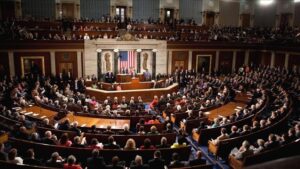Wires were on fire yesterday (Tuesday) after news broke that Japan’s second and third-largest automakers (Honda and Nissan respectively) might be merging.
Before we dive in, the ‘might’ above is actually kinda funny:
- The two companies put out statements saying the news didn’t come from them, but their two statements also kinda confirmed it by being literally identical; and
- Japanese media then ambushed the Honda CEO out on his run this morning, and he basically confirmed it too (though lots of specifics are still TBC).
Interestingly, the Japanese government seems to have played a behind-the-scenes role here, and has openly floated a possible Honda-Nissan merger since 2020. Why?
Stay on top of your world from inside your inbox.
Subscribe for free today and receive way much more insights.
Trusted by 134,000+ subscribers
No spam. No noise. Unsubscribe any time.
For a range of tech, commercial, and geopolitical reasons — our favourite Venn diagram.
First, on the tech front, Tokyo has been open about where it sees the world’s auto-industry headed: just last month, it set a target (and offered help) for its companies to gain 30% of the ‘software-defined vehicle’ market by 2030 — they see the future not so much in terms of a vehicle’s brawn (electric vs gas), but more in its brains.
Second, on the commercial front, closing the tech gap on AI, automation, and cloud to compete in a smart future requires massive investments now — and that’s tough for smaller players. So the merged automaker, with rumours of Mitsubishi joining too, would be the world’s third-largest automaker.
Third, on the geopolitical front, governments are worried about their industrial bases getting eroded by state-backed competition from China, which just overtook Japan as the world’s top vehicle exporter after sextupling sales in five years. That spooks the West not just for jobs or revenue reasons, but because an industrial base is also what you need in the event of a war: in WWII, Cadillac switched to make tanks, GM made bombers, Oldsmobile made bullets, and so on (ditto for BMW in Germany, Mitsubishi in Japan).
So… will this possible merger work?
The market’s response hints at the challenges ahead: Honda shares sagged, while Nissan soared 24%. That’s because, while both automakers have challenges, Intriguers might recall only weeks ago that folks in Asia were googling “Nissan collapse”, after an anonymous executive warned the firm might only have 12-14 months to live.
So why would the stronger Honda — long preferring to go it alone — now change course and do this deal? We can think of three main reasons:
- a) It’s bending to the reality that bigger is better in this auto race
- b) While Honda has been late to the EV game, Nissan was Japan’s EV pioneer (remember the ‘Leaf’?), and
- c) Nissan has a big manufacturing footprint in the US, which is enticing for any foreign player looking for local options ahead of Trump 2.0 tariffs (even for an established manufacturer in the US like Honda).
But this won’t be easy: there are fears of political backlash in Japan given the likely job losses from a merger (though they’d be worse if Nissan collapsed). And this joint push into the future of smart cars comes just as EV sales ease: early adopters already adopted, cash-strapped capitals are rolling-back incentives, and weary consumers are hitting pause.
So this is going to be one heck of a joyride.
INTRIGUE’S TAKE
One of the things we’re learning about a smart car future is that it’s easier for ‘smart’ to learn cars (Tesla, BYD, Waymo) than it is for cars to learn ‘smart’ (GM just pulled the plug on its self-driving start-up, following a similar move by Ford and VW in 2022).
The other thing we’re (re)learning is that companies can be similar to countries in some intriguing ways, like how they make and break alliances to survive: Nissan is now running to Honda after a long-running but messy partnership with Renault.
Also worth noting:
- The possible Nissan-Honda-Mitsubishi merger, which builds on announcements in March and August, would basically consolidate Japan’s industry into a duopoly (Toyota has tie-ups with Subaru, Suzuki, and Mazda).









